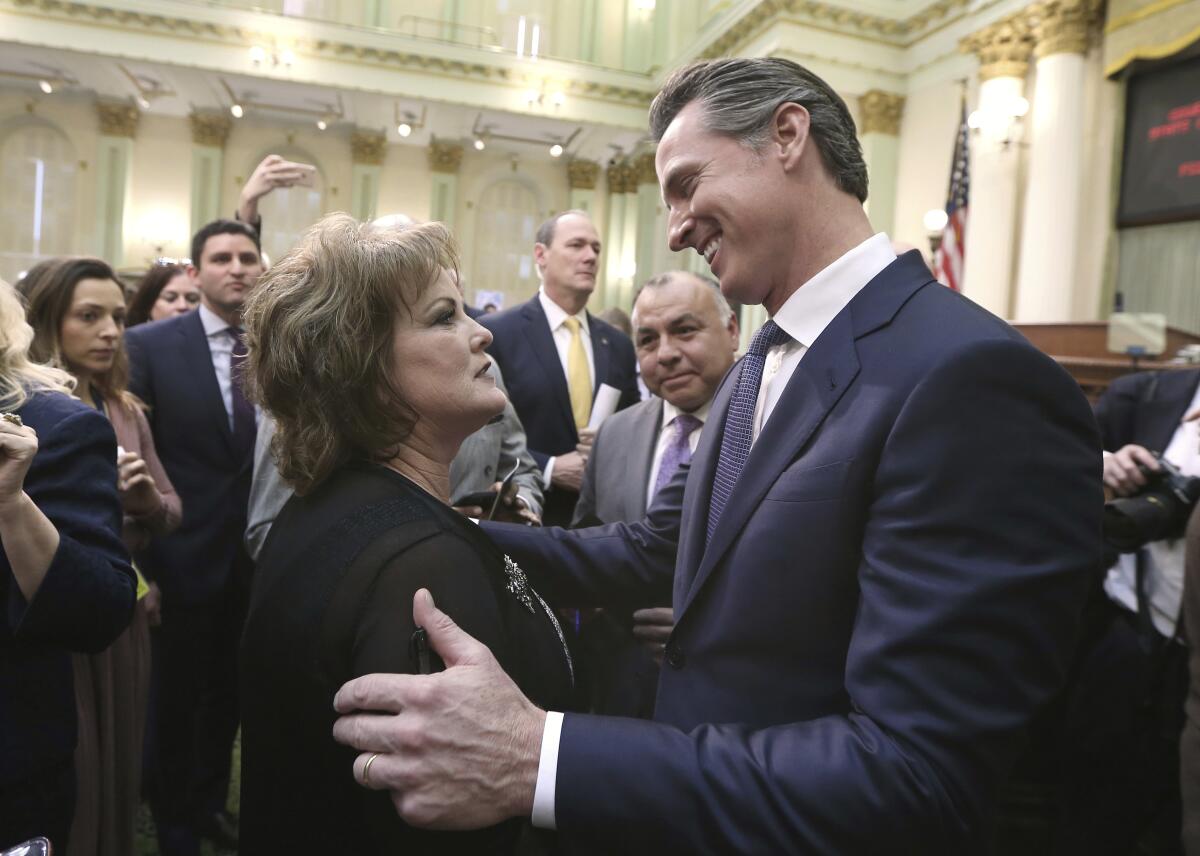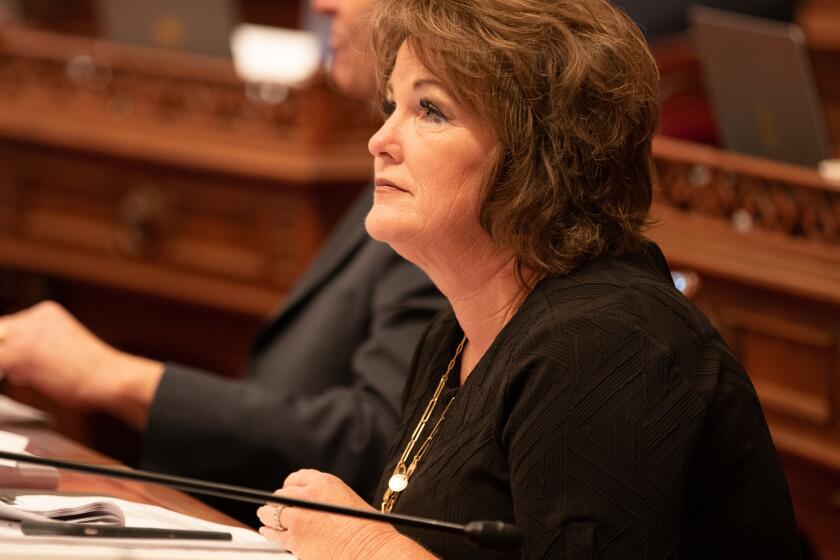California child sex trafficking bill that divided Democrats clears hurdle

A proposed law in California to lengthen prison terms for child sex trafficking that ignited public outrage and divided Democrats this summer was changed during a critical vote on Friday to address concerns over victims potentially being prosecuted.
An amended version of Senate Bill 14, which would add the sex trafficking of minors to the list of felonies classified as serious under California’s penal code and subject people to additional time in prison under the state’s “three strikes” law, passed the powerful Assembly Appropriations Committee on Friday.
The amendments “exempt human trafficking victims from the serious felony provision,” said Pasadena Democrat Chris Holden, chair of the panel.
The changes were pushed by progressive Assembly Democrats in response to criminal justice reform advocates’ concerns that the bill could harm victims. Holden called the amendments “very narrow,” and said they were designed to ensure that trafficking victims are “not further victimized.”
Though the Republican state senator who wrote the bill had said earlier this week that she didn’t want it to undergo any changes, she said Friday that she was satisfied with the modifications.
The new version “just clarifies existing law to protect victims that are wrapped up in the trafficking situation as well,” said Sen. Shannon Grove (R-Bakersfield). “That was not our intent, ever, to have a victim prosecuted for human trafficking [after being] trafficked themselves.”
A key panel passed the bill two days after killing it, reviving what had been a bipartisan effort to crack down on people who repeatedly traffic children.
Disagreement over the closely watched measure reached a boiling point earlier this summer when the the left-leaning Democratic majority on the Assembly’s high-profile Public Safety Committee blocked passage of the bill, which had glided through the Senate with bipartisan support earlier in the year.
Democrats on the committee raised concerns that the bill could be used to prosecute victims who had been forced into a cycle of human trafficking, and could retraumatize those who had survived such abuse. Committee Democrats also questioned the bill’s expansion of the three-strikes law, a relic of the state’s tough-on-crime past that many attribute to the wave of mass incarcerations that has filled up prisons.
Advocates who work with sex trafficking victims have also been divided over the bill, with some agreeing that it could result in incarcerating the wrong people, and others saying that severe prison terms are needed to discourage abuse.
By making child sex trafficking a three-strikes offense, prosecutors could pursue life sentences for those who whose records include other felonies classified as serious or violent. Child sex trafficking already carries up to 12 years in some cases, or 15 years to life if the crime involves factors such as force, fear, coercion or violence.
“SB 14 doesn’t actually meet the needs of the victims and doesn’t address the causes of the problem,” said Natasha Minsker, a policy advisor to the left-leaning public safety organization Smart Justice California. “We are approaching the conversation from a completely wrong direction if we say we are going to increase penalties and we’re going to prosecute our way out of it.”
The bill’s initial demise caused a public relations nightmare for Democrats, handing Republicans the rare opportunity for a legislative win after they painted their counterparts in the majority as apologists for child sex trafficking.
Some Democrats who had not initially supported the bill apologized and reversed course. The chaotic episode prompted Democratic Gov. Gavin Newsom and Assembly Speaker Robert Rivas (D-Hollister) to weigh in on the issue and encourage a resolution. More than half of the Legislature’s 120 members have since signed on as co-authors of the bill.
Facing intense pressure to reconsider the vote — and after enduring death threats — Assemblymember Reggie Jones-Sawyer, the Los Angeles Democrat who chairs the Public Safety Committee, called for a new hearing on the measure, and it was promptly passed.
Debra Rush, a survivor of child sex trafficking and founder of the Fresno-based organization Breaking the Chains, said that lawmakers needed to draw a “hard line in the sand,” and that SB 14 would send traffickers the message that they will face serious consequences.
“If we don’t protect our most precious resource and our most vulnerable — our children — then we fail across the board. These are kids,” Rush said. “It is hard to even think of another crime that even comes anywhere near the level of trauma and violence that human trafficking victims experience.”
Times staff writer Mackenzie Mays and Sacramento bureau chief Laurel Rosenhall contributed to this report.
More to Read
Sign up for Essential California
The most important California stories and recommendations in your inbox every morning.
You may occasionally receive promotional content from the Los Angeles Times.












